Text
Little Fish
I’m grateful to be a part of LITTLE FISH, Edward Columbia and Cyrus Duff’s film that captures me in the last days of Miya’s as a brick and mortar restaurant.
Hair thinning from stress, puffy-faced from not healthily dealing with stress, and the chronic exhaustion exasperated from pandemic; it was heart-wrenching for me to watch myself so beat down, filmed a couple of months before I leaped from the only life I’ve known and loved at Miya’s to attempting to build one that restores me as much as it does the people and the planet I love.
I see this as a story about an individual who's journey parallel’s humanity’s struggle to reinvent and save itself in the face of imminent self-made catastrophe. Thank you my brothers, Edward and Silas, for having me be a part of your beautiful art. Thank you to all my friends and family who have lifted and carried me through my journey.
https://www.newyorker.com/culture/the-new-yorker-documentary/a-celebrity-chefs-burnout-and-pivot-to-resiliency?fbclid=IwAR3wLY2bnFI8f7wHkpOk1D9IVBXpBf3xb6g8YoeiN3QxhFQSwmVW0kxNGj0
4 notes
·
View notes
Text
A fascinating academic paper about chefs who use the plate as an ecological landscape device which features Ferran Adria, Rene Redzepi, Heston Blementhal, Grant Achatz, Dominique Crenn, and a sustainable sushi chef from New Haven:
“Anthropocenic impact on climate and resources directly ties to food sources, and chefs, in designing encountersbetween diners and nature, can choose to play an active role in framing theserelationships through narrative and scenographic dramaturgical choices.
In an interview with The Nature Conservancy, Chef Bun Lai of Miya’s in New Haven, Connecticut articulates such ethical concerns. As overfishing has depleted stocks of one of the most popular sushi fish, Pacific Bluefin tuna, to an estimated 2.6% of historical levels, Lai explainsthat, he ‘began to think about how serving invasive species could helpcurb their dominance in the ecosystem while also reducing the stress onmore commonly served fish framing these choices for the dinerthrough programme-like menu statements, such as ‘Eating invasive species has the potential to restore habitats and take pressure off offactory farming’or ‘Almost half the food produced in the world goesto waste ―a fact that is a tragedy in a world where over a billion peopleare hungry. This tasty recipe was created to illuminate the problem of waste by utilizing crispy omega-3 rich salmon bones and broccoli stems,which are commonly discarded food items’. While examples such as Lai’s may not be explicitly theatrical, other chefs, in seeking to demon-strate such possibility draw explicitly on the restaurant’s dramaturgicaland performative potentials.”
https://www.researchgate.net/publication/347825875_Towards_an_Ecological_Dramaturgy_of_Dining_Plate_as_Landscape_Device
4 notes
·
View notes
Text
What are the most important things in life?
In 2019, when I chose to leap from the sure thing of a successful career to mid-flight where I am now, it wasn’t without anxiety or fear. But, I was confident about doing it because I knew that if I didn’t take the leap I’d regret not taking chances so I can grow. In order to be the best human being we can be we have to take big leaps of faith—but we have to make sure we do it in a way that keeps what’s most important in our lives in mind.
There are four things that are universally vital to a meaningful life that we should never take for granted. The first is God. I’m not religious but I know that my life isn’t all about me and my material existence. Our ancestors believed that, too, and created religions that told us that happiness is about aspiring for something greater than ourselves and our things. Every religion eschews worldly possessions and wealth. Yet, today, the planet and our spirits have been ravaged by our unbridled consumerism. Why do these Amazon packages keep arriving in my doorstep every day?! The second is our health. No matter what you achieve, if you don’t have your health, you won’t enjoy it. Today, I’m reinventing my life and work so I can do it in a way that restores my health rather than taxes it. The third is love. Love is our family, our friends, our special person, our pets, and an approach to the world that welcomes and heals. The fourth is purpose. I spring out of bed in the morning so I can work on projects that I believe will help make the world a little bit better, which is all I’ve ever really wanted to do. All of this is true wealth. We are likely already wealthier and happier—in the ways that matter most—than the wealthiest people on Earth. Let’s not take it for granted.
#lifelessons #thoughtoftheday #wisdom #consumerism #purpose #meaning #god
1 note
·
View note
Text
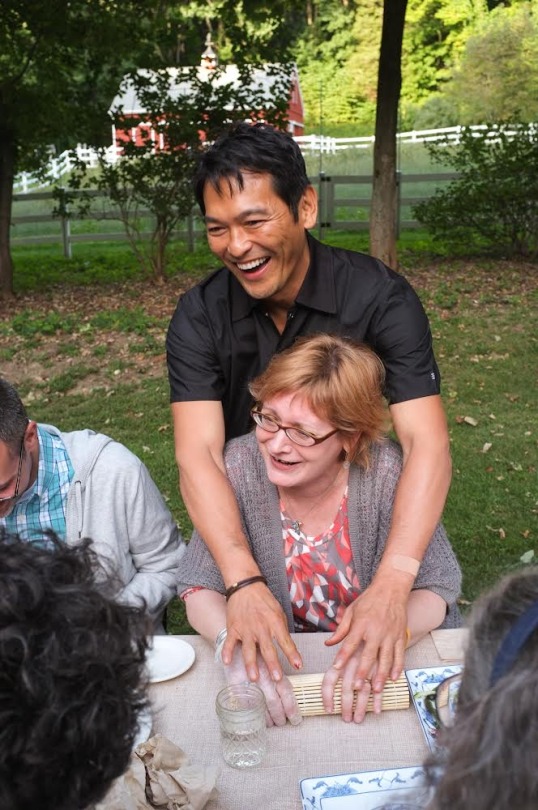
The world is free of smallpox, and we have nearly wiped out seventeen other microbial scourges like polio, too, because of vaccines. Yet, many of us refuse to be vaccinated. And, it’s understandable why because the scientific community has a history of doing awful shit. But that’s not a flaw in science. It’s people corrupted by power, money, and flawed ideology who’ve used science in a destructive way.
But, don't throw the baby out with the bathwater. Science has not only been destructive; it’s been constructive, too, in ways that have positively impacted all of our lives. It’s because of vaccines, germ theory, and antibiotics that we live twice as long as we did a century ago.
From inequities to Climate Change to poverty, there's a lot of bad stuff in the world that we need to stand up and fight against. Vaccines aren’t one of them. If you haven't been vaccinated and you haven't gotten sick it's because you've been lucky and others around you have protected you by being vaccinated. You don't get vaccinated just to protect yourself. It's about about stepping up and doing it for the greater good.
So, let’s not become incubators of the next COVID variant or a vector that passes it along. Let's not turn back the clock to a time when we lived in fear of polio, the measles, whooping cough, smallpox, bubonic plague, and a plethora of other terrifying infectious diseases that can be easily avoided by getting vaccinated.
I know this has become a divisive topic but it’s the conversations that we want to avoid that are the ones we that we likely most need to have.
#mistrustofscience #fearofscience #abuseofscience #fearofvaccines #antivaccination
0 notes
Text
I'm a sustainable food advocate, educator, and innovator, yet I struggle to live sustainably. An open conversation about my struggle in the context of the pandemic with the incomparable Alix Lanbert
0 notes
Text
I'm stoked to be on Kevin Estela’s FieldCraft Sorvival podcast. Kevin is an expert outdoorsman, and I am a master on none. Nonetheless, we are brothers from another mother, strong Asian boys who love nature and martial arts. Here we are hot boxing it. If you enjoy it half as much as I did chatting with Kevin, you'll love it!
Also, just a reminder, a few more tables left at Miya’s Farm to Table Dinner this Saturday!
Dinner will feature plenty sustainable seafood, invasive, & plant based classics!
RSVP ASAP.
When: Saturday, August 7, 4pm.
Where: Miya’s in the Woods (Woodbridge)
Fee: $150/person
RSVP: [email protected]
https://anchor.fm/fieldcraft-survival/episodes/Episode-240-Kevin-Estela-and-Bun-Lai-talk-Food-and-Sustainability-e156r38
0 notes
Text

There are few places on earth more distressed by invasive species than the Everglades. Almost a third of the animals in this massive man-made watershed are introduced species that have wreaked havoc on the native ecosystem. Andrew and I spent weeks living in a tent and witnessing first-hand the impact that invasive species have had in one of our country’s most biologically diverse ecosystems. We shot an iguana, caught anoles, cane toads, and a twelve foot python with our own hands, killed them, and cooked them up. The thrill of the hunt transformed to a heavy heart when, finally, it came time to kill them; a heavy heart from being conflicted as a meat eater who, also, cares for animals. I held the cleaver up high above the python’s head, and my arm froze.
When we consume packaged meats, we shield ourselves from the pain and suffering our choice to eat animals cause them. I believe that it would be beneficial for all of us who eat animals to experience the killing of them so that we understand the process. If we eat burgers, we must be able to pull the trigger on a bolt gun that’s held to the head of a cow. It’s one thing to understand butchery on a conceptual level and another to watch the eyes of an animal that we just shot roll back in its head as its giant body crumbles to the floor.
0 notes
Text

We are a society obsessed with being happy. When happiness is an end goal you set yourself up for a let down of existential proportions. That’s because happiness comes and goes like warm sun on your skin that happens as it peeks through the clouds. Happiness is the other side of the coin that is suffering; and suffering helps us dive into the depths of meaning in a way that happiness never can. Let the search for meaning be your goal, so that everything you do in your life is part of a journey greater than your own happiness. Only then, will you find true happiness, the kind that comes from being in loving relationships and from striving to make a positive difference in the world that you will one day, soon, leave behind.
Photo: chef Luis and I about to dive for edible marine invasive plants and animals.
0 notes
Text
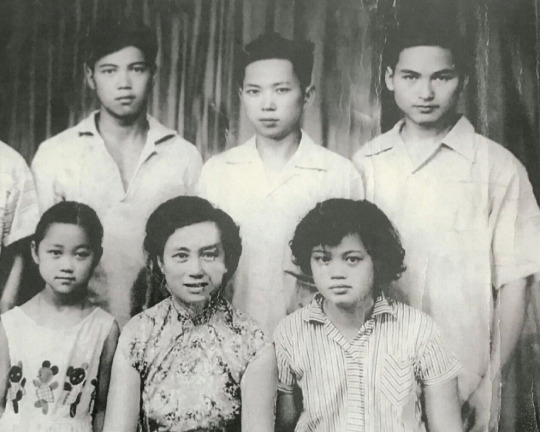
I was ten, it was summer break, and late at night at his lab at the med school. Drowsily doodling, I asked my dad why he always had a note pad in his front pocket.
“I even have a pad and pen on my night stand next to my bed. That's because I never know when I’ll have a good idea that I’ll need to write down.���
Thanks to dad, I write down all my ideas, even if I have to pull over on the side of the road to do it. Writing is the bridge that connects your thoughts to the reality of making it happen.
Even today, dad writes his ideas down. And so do I.
It's the little things between my father and I, that didn't seem to mean much then, that continue to make such a difference in my life.
Photo: Dad is on the far right, circa a long time ago.
#fathersday
0 notes
Text

My father did decades of medical research and performed countless free surgeries in Africa. It’s because of dad that I’ve committed my life to help make the world a better place, in my little way, though with a chef’s knife instead of a scalpel.
A little dad story for Father’s Day:
Years ago, dad gave me an ugly tie.
“This is a $6000 tie.” He said, with his big smile and a twinkle in his eye, as he handed it to me. Dad shunned expensive things, so I was perplexed about why he’d own a tie that costs so much.
When I looked at the backside of the tie, I noticed it was made of polyester.
“Dad, this is more like a six dollar tie.” I laughed.
“Its actually a six thousand dollar tie because I did a $6000 surgery in exchange for it. The person I did the surgery on wouldn't have been able to afford the procedure to save his vision”
My father isn't a religious man, but he had a postcard of El Greco’s painting, “The Miracle of Jesus Healing the Blind” in his office as inspiration.
Like Jesus, my father, also, healed the blind, and passionately cared for the poor.
It's funny how we become like our parents as we grow older, despite trying so hard not to become them.
Thanks, dad, for blazing the way!
Happy Father’s Day!
#fathersday #fatherhero
0 notes
Text

My Christopher Reeves memory:
When she showed up, with Christopher Reeves, her father, I tried to hide the fact that I was surprised. Alexandra said she was bringing him in, and even made the reservation in his name so I would know that this was going to be a special situation, but she has an English accent so I heard Raves not Reeves, and nobody ever told me she was his daughter over all the years she ate at Miya’s, and why would they. She was very humble and quiet so she would never. Stealthily, I moved tables around for them, asking myself how could I have freaking misheard her?!
He was awkwardly positioned sideways (because he was so tall and our tables so low). Every dish I made, I nervously delivered it myself. As Alexandra carefully fed him, he would chew slowly, slowly swallow, and pause and ask me about my process of creating each recipes.
“Mmm—fried fish sushi. Was Southern cuisine an inspiration for this recipe?”
“This one is with blue catfish, an invasive species, and healthier for you and the environment to eat than the farmed variety. This recipe pays homage to the Blues and Soul Food, to African American culture, that’s why I named it Catfish Blues.”
Nobody had ever asked me about my creative process. When, finally, the last dish was served, he turned to me and said “flavors like this have never happened in my mouth before.”
Those words lifted me, and continued to lift me, in a time when many were highly critical, and sometimes downright mean, of my unconventional approach to sushi.
Taking a moment to listen to a stranger and sharing a kind thought or two can mean so much to another person, so it's something I try to do, whenever I can, thanks to a real-life superhero who once dropped by when I was young, a bit lost, and needed a little encouragement.
1 note
·
View note
Text
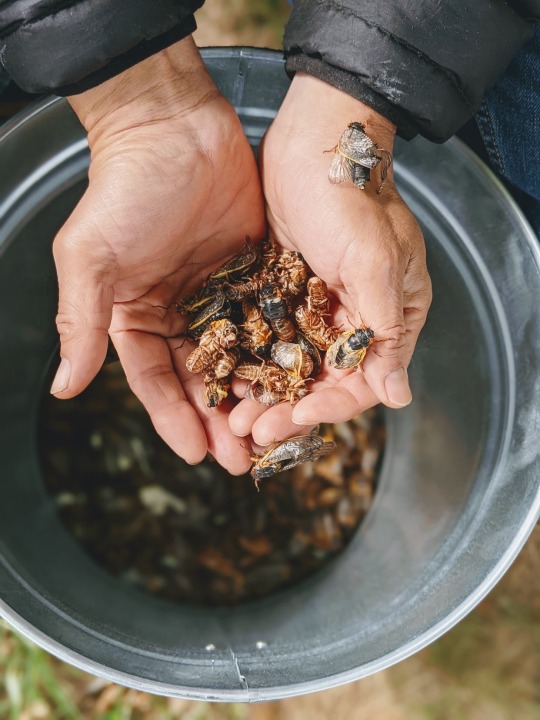
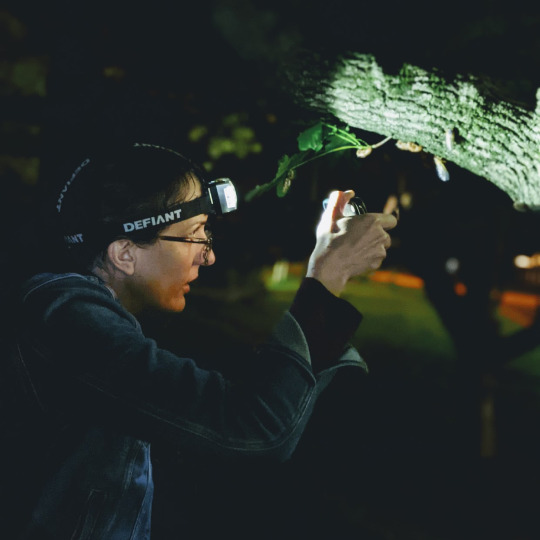
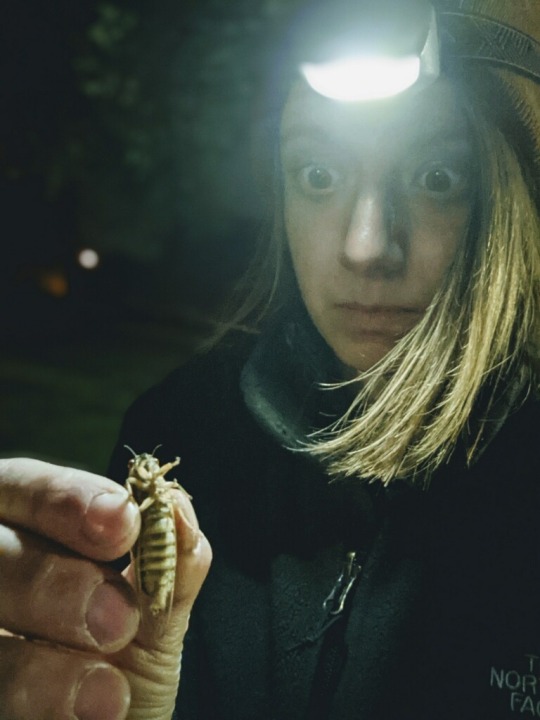

I'm pretty exhausted from not having slept last night after countless long days of work and going to DC twice without finding cicadas, but when your work is about everything you love, work exhaustion becomes enthralling. We took a chance, coming back for cicadas before they were out in great numbers again, but, boy, did it finally work out. Now we have all the cicadas we will need to do several Miya’s in the Woods cicada dinners that international media will cover to add to the discussion of environmentally sustainable food. Nothing important ever gets done without dedication and a willingness to leap, fall on your face, and get back up again. That all said, if we didn’t find cicadas this third time, I think I would have thrown a tantrum and cried my eyes out—but I wouldn’t have given up yo.
#cicadas #broodx #broodxcicadas #foraging #miyassushi #wildfood #chefbunlai #entomophagy
1 note
·
View note
Text
On planting day, five-year-old Rhys is surprised to learn the dirt he's loading into the Miya’s Farm Tonka trucks is compost made from poo.
Our aversion towards feces, an untapped and overabundant resource as a fertilizer, starts early. Change starts with playing with poo and Tonkas.
0 notes
Text

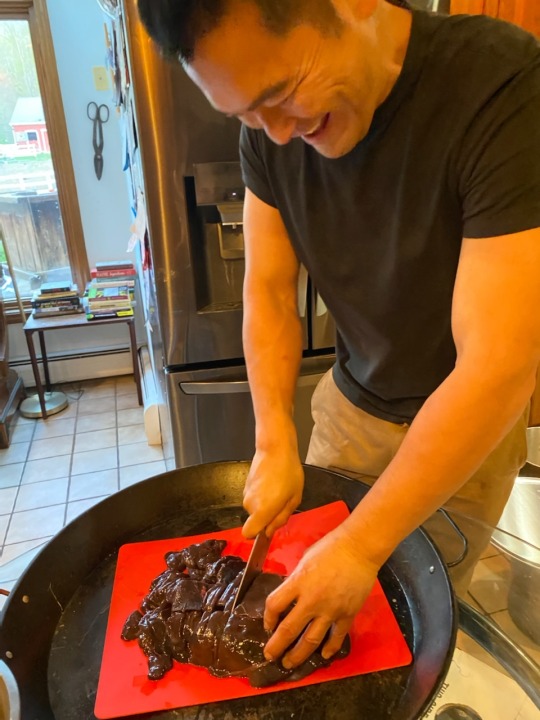
For a friend with iron deficiency, I needed to make an iron-rich meal, so I made smoky wood-fired Texas invasive boar liver with invasive mugwort and mustard garlic, with wild chives that crisped like hair-thin French fries, that I harvested from around the yard. There are many plant-based sources of iron, but animal-based heme iron is best absorbed, especially with the help of vitamin C, which the leafy wild greens are full of.
Factory-farmed animals are inflammatory because they are fed Omega-6-rich corn. Wild animals are rich in Omega-3s that help fight inflammation. Chronic inflammation from an Omega-6-rich diet is a major contributor to chronic inflammation that is associated to cancer, heart-disease, diabetes, dementia, and a bowel diseases.
Today, for the Miya’s Culinary Crackpot Club forest dinner we will be eating these abundant, underutilized, and environmentally destructive species. If you are going to eat meat, choose to eat an biodiversity-destroying invasive or pestilent species instead of factory-farmed animals that are a major contributor to climate change, pollution, and potential pandemics.
#bun lai#invasive species#bun sui lai#sushi#miya's sushi#chronic disease#chronic inflammation#climate change#boar#hunting#foraging
8 notes
·
View notes
Text

Invasive species are connected in numerous ways to many of the environmental issues we face today like climate change and the precipitous loss of biodiversity that many in the science community have called the Anthropocene Extinction.
As regions become warmer, invasive species establish themselves to the detriment of native species. In the U.S. alone, there are over 50,000 established invasive species resulting in trillions of dollars of economic damage and often irreversible environmental and social destruction.
From the woolly mammoth to the passenger pigeon, humans have eaten countless animals to extinction. Today, hundreds of animals are facing extinction due to the human desire to eat them. The human appetite is one of the most destructive forces on Earth so shifting that appetite towards invasive species—and away from species that are farmed in a way that is environmentally destructive—such as industrial livestock production—or other’s that are over-fished or over-hunted—is part of the complex solution to an increasingly complex plethora of human and environmental problems.
Furthermore, five billion pounds of pesticides are dumped into our ecosystem worldwide each year in order to destroy pests like the grasshopper and weeds like the dandelion that are healthier and tastier to eat than most store-bought food. A third of all pesticides used in the United States are capable of causing contamination in groundwater, neurotoxicity, sterility, birth defects, and cancer.
If these agricultural pests were to become a part of our diets, farmers would be able to use fewer pesticides on their crops and consumers would have a new, exciting, and nourishing source of food. Our challenge is to be able to transform these wildly exotic but highly destructive species into recipes that our audiences will love.
At Miya’s, our ultimate goal is to create new ways of eating that encourage greater balance in the inter-regenerative relationship between humankind and the living planet. If we were to have thirty Miya’s in thirty different places, each one would have a slightly different menu, each reflecting the problems of its local habitat. The Miya’s invasive species menu menu and general store product line was created using common invasive and agricultural pest and weed species that are healthy and tasty to eat. The possibilities are almost endless.
Photo:
My edible ode to invasive Asian shore crabs, The Kanibaba.
0 notes
Text
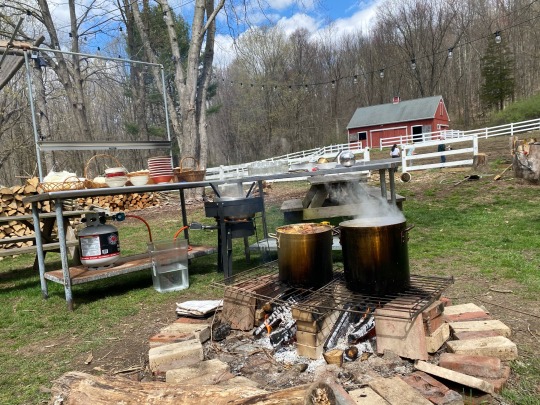
Cooking at Miya’s isn’t the ultramarathon it used to be; and my life has gradually become more sustainable in the way my cuisine aspires to be. It has everything to do with cooking outside in a space that allows me to connect with people and nature in an intimate way. The way we cook, eat, and live today has become so separated from nature. Walls, technology, and contaminated stagnant indoor air have become prisons of our own design that have contributed to chronic depression and a myriad of other chronic lifestyle diseases.
0 notes
Text
A pre-cicada-hunt conversation about #climatechange with my ten year old assistant, William.
0 notes